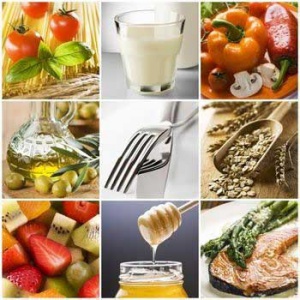Biotin
Contents
Description
Vitamin H, also known as Biotin or vitamin B7, is a water soluble vitamin that acts as a co-enzyme that increases the speed of the biochemical process and assists in the metabolism of carbohydrates as well as the synthesis of proteins and fats. This in turn increases the body’s level of detoxification and as a result lends greater levels of health to the body. Naturally found in soybeans and egg yolks, biotin assists with cell growth and reproduction as well as fatty acid production. A deficiency of biotin in people may lead to eczema or fat metabolizing issues or illnesses due to these symptoms. High doses of biotin may be beneficial to those who suffer from Diabetes. Biotin levels are depleted by long term use of anti-seizure medications, antibiotics and excess consumption of alcohol.
Health Benefits
There are a variety of benefits associated with biotin intake such as the benefits it poses to those with Diabetes as it is involved in the metabolism of energy and the absorption of glucose. Vitamin H also plays a role in the metabolizing of proteins, sugars, carbohydrates, fats and amino acids. Biotin also assists in the utilizing and absorption of other B group vitamins. Biotin helps to build and maintain muscle and nervous system tissues as well as the growth and health of bone marrow. Essential to a healthy circulatory system, biotin is also beneficial to balancing or lowering cholesterol levels, promotes healthy energy levels, prevents baldness, assists with any muscle pains, and may prevent and/or treat various heart problems as well as Parkinson’s disease and Rett Syndrome. Biotin is also proved to be beneficial to those suffering from obesity or who are overweight as it helps to reduce the amount of fat in the body and keep it in optimum shape and health.
Beauty Benefits
Various beauty benefits are gained from healthy levels of biotin including healthy hair, skin and nails as well as a healthy slim figure. Biotin promotes healthy hair and actually prevents hair loss and conditions such as alopecia. It strengthens the nails and assists other B vitamins in their actions to ensure the prevention of premature aging, the protection against free radicals and more. Biotin also ensures healthy, glowing and moisturized skin. Many people will see noticeable results of improvement in these areas after they begin taking a supplement in biotin or ingesting more foods with biotin in them.
Food Sources
Vitamin H or B7 is readily available in a wide variety of foods and herbs as well as in supplement form, but here are some foods where biotin is found:
- Bananas
- Cauliflower
- Egg yolks
- Fruits
- Broccoli
- Spinach
- Legumes
- Meat
- Milk
- Nuts
- Oatmeal
- Poultry
- Saltwater fish
- Soybeans
- Whole grains
Daily Dose Recommendations
- 0-6 months: 35mcg
- 6-12 months: 50mcg
- 1-18 years: 100-200mcg
- 18 years: +300mcg
- Pregnant: + 50mcg
- Breast Feeding: +50 Mcg
Deficiency
Biotin is readily available in many foods, making a deficiency in this vitamin very rare. Symptoms of a deficiency in biotin include but are not limited to dry, scaly skin, hair loss, depression, anorexia, nausea, insomnia, muscle pain, high blood sugar levels, loss of appetite, drowsiness, psoriasis and anemia. Those who wish to gain the benefits of biotin may wish to increase their levels by taking a daily supplement or increasing their intake of foods with high levels of biotin.
